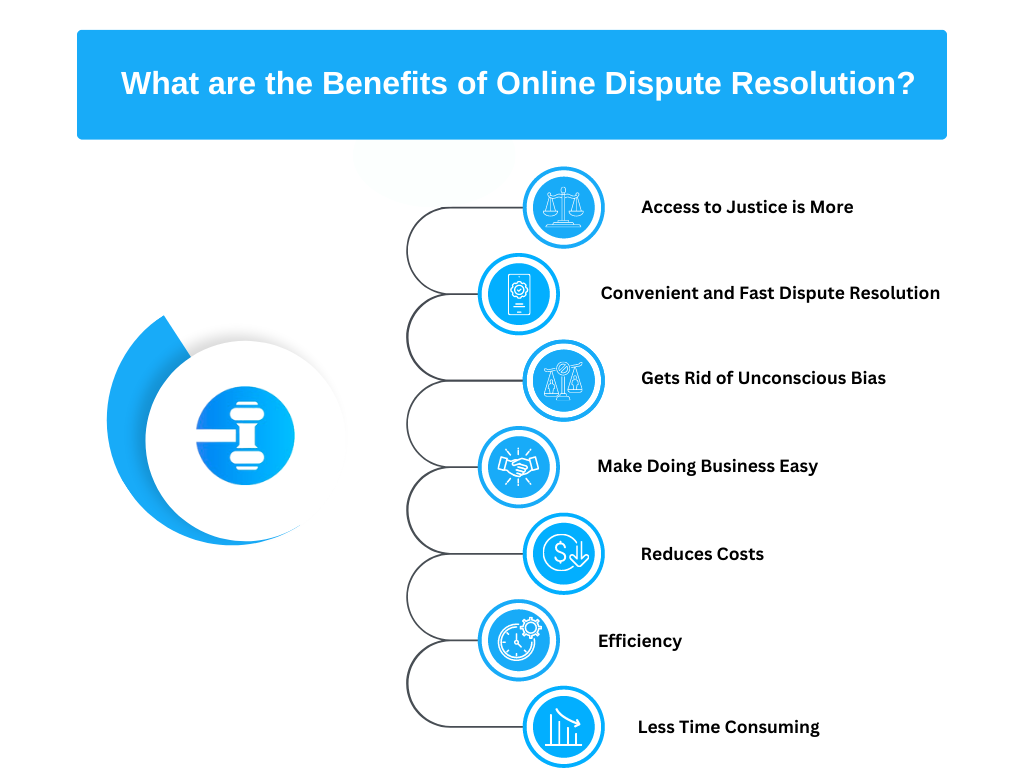ODR – A Necessity for Seamless BNPL
With the emergence of technology, resolving disputes has also changed dramatically. It peaked during Covid-19 times, and there has been a massive shift in the legal hearings globally. Online hearings and virtual e-filings have become common, changing the picture of the legal scene tremendously. The growth of ODR (Online Dispute Resolution) coincided with the expansion and development of the internet, and many e-commerce companies used ODR to get customers’ trust. Online transactions increased with the advent of the internet.
Online Dispute Resolution uses the techniques of Alternate Dispute Resolution (ADR), such as arbitration, Negotiation, and resolution. It advances further the concept of ADR, which helps in settling disagreements in a manner that both parties peacefully accept.
ADR And ODR
Alternate Dispute Resolution and Online Dispute Resolution are two different things, though many consider ODR an online form of ADR. While ADR is physical, ODR exists mainly in the virtual world. No body language and physical emotions are involved in Online Dispute Resolution, while ADR is precisely the opposite. Alternate Dispute Resolution and Online Dispute Resolution work in parallel lines, though parallel lines do not meet, there are exceptions.
The Indian judiciary system is one of the oldest judicial systems in the world, and ADR is used to settle disputes outside the traditional legal system in this ever-evolving legal system. The two standard methods used in ADR are Arbitration and Mediation.
In the Arbitration Method, a neutral third party is involved in resolving the disputes between two parties. The third party is usually a panel of arbitrators. In Mediation Method, the mediator’s skills play an essential role in bringing the disputants to an amicable agreement. The mediator uses the process of communication to reach an agreeable solution.

The ODR uses Automated Negotiation and Assisted Negotiation. Automated Negotiation is again divided into two parts, Double-Blind Bidding, which solves a single monetary dispute between two parties, and Visual Blind Bidding which can be applied to negotiations between many parties and issues.
In Assisted Negotiation, the mediator uses his communication skills to solve the dispute between two parties by bringing them together and using a friendly and informal method.
What are the Benefits of Online Dispute Resolution?
Access to Justice is More
ODR tools of online Negotiation and mediation make the dispute resolution process less complicated and ensure both parties have equal justice.
Convenient and Fast Dispute Resolution
Online Dispute Resolution is convenient and fast to settle disputes because it avoids travel and arranging and scheduling meetings of both parties who want to resolve their disputes.
It gets Rid of Unconscious Bias
The unconscious bias of the neutral can be lessened while using Online Dispute Resolution.
Make Doing Business Easy
Online Dispute Resolution has a lot of potentials; if you tap into it, you will know how to increase the ease of business in India.
Reduces Costs
Online Dispute Resolution is cost-effective as you do not need legal advice, and the time for resolution is less and reduced.
Efficiency
People can connect despite physical disabilities and geographical barriers.
Less Time Consuming
Courts will take longer to resolve cases, and compared to that, ODR is less time-consuming.
What are the Challenges of ODR?
Digital Infrastructure
A good technology infrastructure is essential to adopt ODR.
Digital Literacy
Digital literacy is essential in Online Dispute Resolution, and everyone has to be digitally literate. In India, digital literacy is often limited to urban areas.
Lack of belief in ODR
Many people do not trust technology and its rapid growth, making them not wholly trust Online Dispute Resolution. That can be a significant challenge in India.
Concerns around Privacy and Confidentiality
There are enough challenges in ODR regarding privacy issues and confidentiality, but confidentiality can be maintained. Though confidentiality can be maintained, it can also be breached at times by disputants.
Language Barriers
Language and cultural differences can create communication barriers.
Lack of Personal Interactions
A lack of personal interactions can make the interactions impersonal. Online inaccessibility can occur at specific points in time.

ODR in India
The future of ODR in India is only recent, and the governments of various other countries have accepted Online Dispute Resolution. The flexibility in terms of the location and lack of physical presence requirement makes the entire process easy. Many platforms in India, including many government bodies, have been using ODR as it is easy to maintain cordial relationships over physical distances. Some agencies offering and using ODR in India are the Consumer Online Resource and Empowerment Center, Online Consumer Mediation Center, Techno Legal Center of Excellence for Online Dispute Resolution in India, ODRWays, Preslov360, National Internet Exchange of India, and many others.
India encourages a lot of small-time businesses and online start-ups now, and compared to conventional litigation, ODR is a better option. Online Dispute Resolution gives a substantially lower rate, and this cost-effectiveness is an advantage for many customers and businesses for whom high rates are a cause of concern.
If you look at ODR from the Indian point of view, since the e-commerce business market is thriving, e-commerce disputes will be more common. ODR has the potential to deal with these kinds of conflicts. It can also be beneficial to solve disputes regarding banking, real estate, employment, etc. If you look at it, ODR is perfect for working within the legal framework of India.
Many BNPLs use the methods of Online Dispute Resolution as it has changed how disputes are resolved. Small and medium-value cases use ODR as it is low-cost and can be used from anywhere. COVID-19 called for an urgent need for Online Dispute Resolution, mostly in credit, commerce, lending, property, and retail. The demands for dispute resolution during the pandemic helped ODR come into the limelight quickly.
BNPLs are primarily companies with high-volume and low-value transactions, many of which are done online. ODR has been helpful here, and it is an accessible, faster, and transparent option that has given it a lot of takers in India.
Conclusion
Online Dispute Resolution is a perfect method of dispute resolution in India. It fits in perfectly within the structures of Indian legal processes. Since it is cheap and easy for small-time disputes, ODR has become popular in India. It can be touted as the popular online dispute resolution of India’s new generation and future.